Exclusive Data: Experts Hailed Holding Kids Back as an Emergency Response to Pandemic Learning Loss
Despite Wave of New State Retention Bills, Most Parents Balked
By Linda Jacobson | November 29, 2021Get essential education news and commentary delivered straight to your inbox. Sign up here for The 74’s daily newsletter.
Charlotte Collins was a kindergartner in name only last year — enrolled in a San Antonio charter school, but not “super participating” in remote learning, her mother said.
“Having a kindergartner sit at a computer to do online school was not a thing I was willing to make her do,” said Alison Collins.
But she didn’t want her daughter, who is still behind in reading, to repeat the grade either. With a November birthday, Charlotte is already one of the oldest students in her first grade class.
“Then she would be almost two years older than her peers,” Collins said. “She didn’t get a fair shake.”
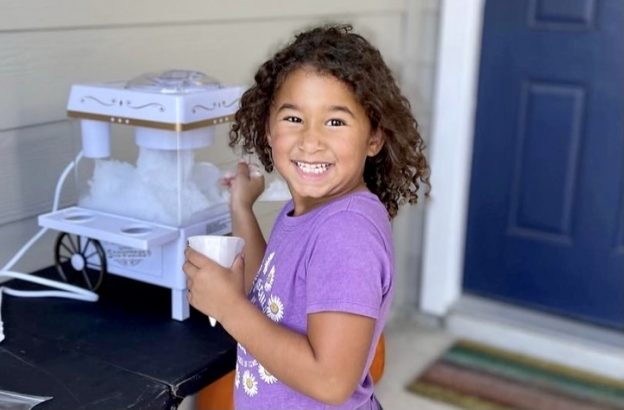
The injustices stirred by the pandemic prompted some policy experts to suggest early on that holding kids back — “retention” in education parlance — would be a good option for students who fell behind. Collins’s home state, Texas, was among five that passed legislation this year to make it easier for parents to request their children repeat the grade they were in 2020-21.
But a review of data obtained by The 74, supported by interviews with parents, researchers and district officials, suggests that families largely rejected this emergency option. Knowledge of the laws sometimes didn’t trickle down to parents and others counted on students getting extra support through tutoring, summer school or small group instruction.
“Kids have been through enough these last two years,” said Gabriel DellaVecchia, a researcher at the University of Michigan who has studied retention laws. “I think families recognize that, and don’t want their children to endure any additional trauma.”
In Florida, one of the states that passed a one-year, pandemic-related retention law, the Miami-Dade district — with over 326,000 students in K-12 last year — received just 11 parent requests to hold kids back, said Gisela Feild, administrative director of data management. In the Hillsborough County district, only five parents asked that their child repeat last year’s grade, according to Terry Connor, chief academic officer.
While the number of parent requests was not always available, it’s clear that retention was not widely used in some districts. The Los Angeles Unified School District, for example, retained less than 1 percent of students before the pandemic and held back even fewer this fall — 266 out of 286,027 students in first through eighth grade, according to data obtained by The 74 through open records requests. And in Newark, New Jersey’s largest district, the retention rate has dropped from less than 3 percent before the pandemic to less than 2 percent.
A new poll from the National Parents Union suggests that even if such legislation had been more widespread, most parents would have balked at the opportunity. In a sample of 739 parents questioned by Echelon Insights, a public opinion research firm, 81 percent said they would not have asked schools to retain children experiencing learning loss.
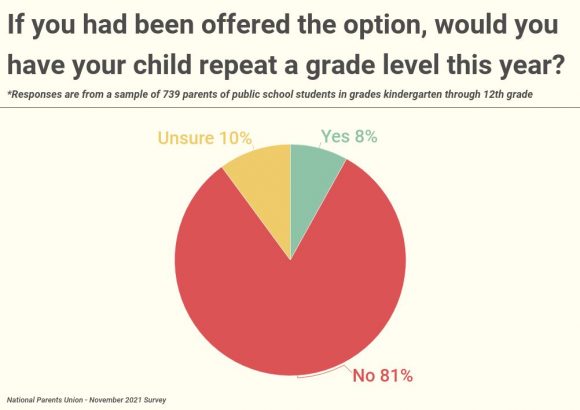
Holding students back wasn’t very popular among administrators either. Less than 10 percent of 957 principals favored retaining students in a spring 2020 RAND Corp. survey. When the researchers checked back in the fall, only 1 percent responded that they were retaining more students than in 2019-20.
But now that students with gaps in both academic and social skills have returned to their classrooms, some educators are changing their tune.
“The biggest struggle we’re seeing is with second graders,” said Lee Ann Wentzel, superintendent of the Ridley School District, outside Philadelphia. Many were kindergartners when schools closed down for the pandemic. Re-adjusting to the routines of school, she said, “gets in the way of the learning.”
‘The modern circumstances of COVID’
Florida Gov. Ron DeSantis was the first to sign legislation in early June allowing parents of students in the elementary grades to request that their children repeat last year. By July, governors in California, New Jersey, Pennsylvania and Texas had followed suit.
But the push in those states — home to seven of the nation’s 10 largest districts — came despite research showing retention doesn’t have lasting benefits and can actually contribute to students dropping out. Lorrie Shepard, an education professor at the University of Colorado, Boulder, called it an “ill-fitting way of thinking that you’re individualizing instruction.”
Sociologists, she said, have found the stigma of being overage in a grade is one factor that can push a student out of school, and among teens, the need to work can pull them away — pressures that disproportionately fall on low-income, Black and Hispanic students.
Those who support the measures say the unique circumstances of the pandemic justify the extreme response. Patricia Morgan, executive director of JerseyCAN and one of 18 advocates who pushed for the option in New Jersey, said opponents of retaining students shouldn’t treat past studies “as gospel.”
Retention, she said, should be “looked at again under the modern circumstances of COVID and this global lockdown.”
One of the more provocative plans came from Michael Petrilli, president of the conservative Thomas B. Fordham Institute, who argued that Title I elementary schools keep students in the same grade they were in when the pandemic began.
Petrilli acknowledged the poor returns from previous research, noting that retention “rarely helps students catch up.” He proposed instead that districts combine individualized learning plans and tutoring to get students back to their appropriate grade level by the end of the year. He added in an email that it’s “a shame” districts haven’t tried this.
But at least one is implementing his recommended mix of review and acceleration.
In the Ridley district, three students who would have been first graders this year split their day between kindergarten, where they work on social skills, and first grade, where they participate in language arts lessons. A fourth student is repeating sixth grade. The results, Wentzel said, are mixed.
“We’re really trying to target what the child’s needs are,” Wentzel said. “I don’t want to refer to it as retention.”
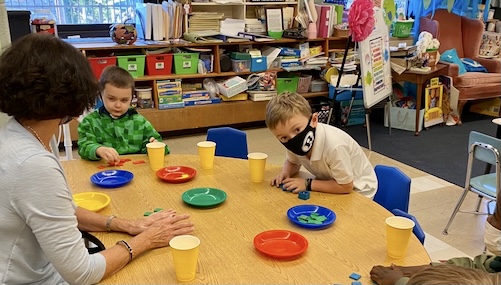
‘Glued to their phones’
Teachers, however, aren’t shy about suggesting many of their students could have benefited from repeating last year.
“I think there are a lot of students who should have been held back,” said Ferlencia Staten, a literacy specialist at Gulfton Secondary, part of the YES Prep charter network in Houston. Assessments, she said, show English learners have lost literacy skills, likely because they were using their home language more during remote learning. Some have been placed in remedial classes.
She remembers teaching virtually last year while students had Netflix playing in the background.
“These kids were glued to their phones for almost two years,” she said, adding that some now sit in class with an AirPod in one ear. “It’s hard [for them] to sit in a classroom for 90 minutes.”
The results of a small survey of educators conducted for The 74, in partnership with Off2Class, a company that provides resources to teachers of English learners, echo Staten’s concerns. Twenty-two percent said they recommended some students repeat last year, and nearly 40 percent said they now have students in their classes that they think should have been held back. About half of the sample of 669 educators, made up of teachers and tutors that use the company’s curriculum and assessment materials, work in the U.S.
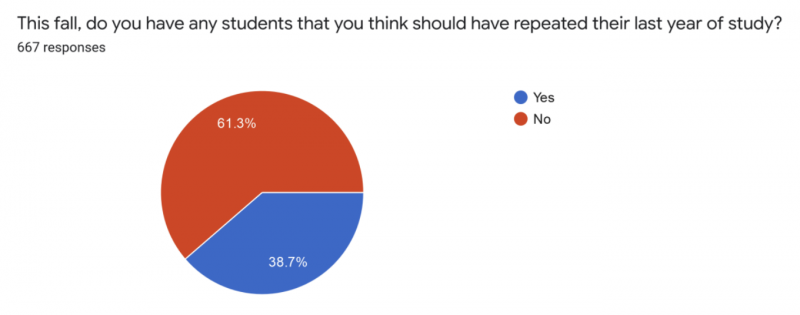
In some districts where few parents opted to hold their children back, retention rates nonetheless rose above pre-pandemic figures. In Hillsborough County, the 2.3 percent retention rate is higher than in the previous three years. Connor, the district’s chief academic officer, attributed the jump to learning loss.
“The pandemic has contributed to more students not meeting minimum performance criteria due to interruption in instruction,” he said. “This has led to increases in course failures and less opportunities for students to meet graduation requirements.”
In Houston, more than 5 percent of K-12 students are repeating a grade this fall, compared to around 3 percent before the pandemic. But the district was unable to provide data on the number of parent requests.
Having ‘academic successes’
Not all parents thought retention was a bad idea. In the National Parents Union poll, about 100 of the 263 parents who had the option of retention said they took it. The sample is too small to be nationally representative, but it shows some parents thought their children should get another shot to do well instead of spending the year playing catch up.
Los Angeles mother Tracey Pontelle felt her son Aaron needed to be “socialized back into school.” She saw the chance for him to repeat first grade as an opportunity to repair damage left by a disrupted school year.
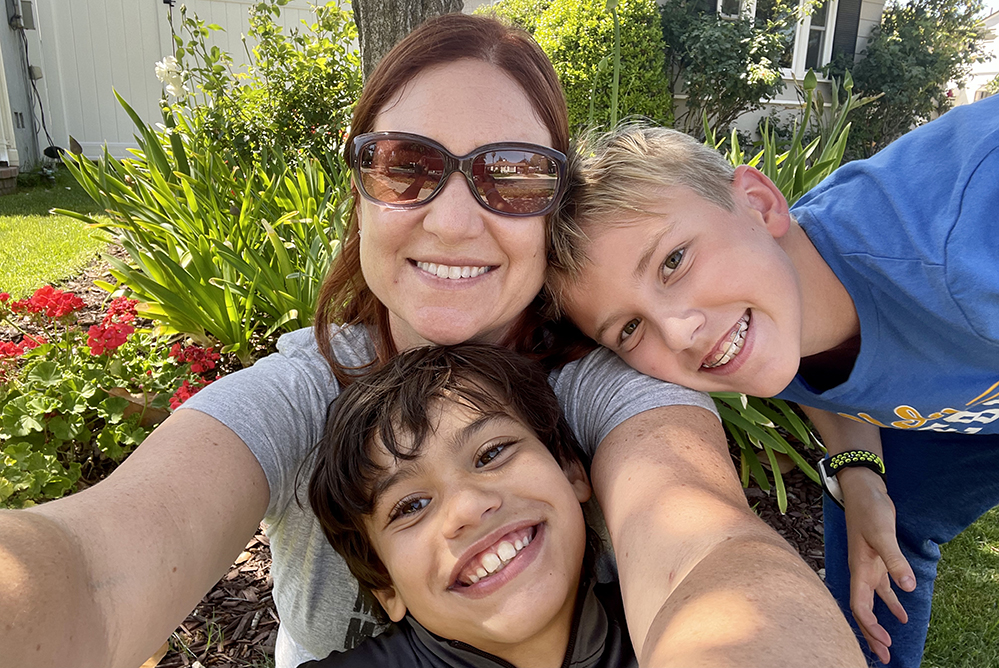
Pontelle did what she could to make remote learning as engaging as possible last year, but Aaron, who has ADHD, wasn’t responding. He would focus for about five to 10 minutes at a time.
“It was just tears and throwing things,” she said. “Academically, he wasn’t reading, not even attempting to read.”
She said she received “zero pushback” from her son’s school, Dixie Canyon Community Charter, when she asked that he repeat first grade. He was even able to get the same teacher — making it feel as though the 2020-21 school year almost didn’t happen. Aaron wasn’t initially sold on the idea, but that changed when a friend from down the street turned up in the same class.
A few weeks after school started this fall, he was reading small words. Then he read his mother an entire “decodable” story — a text for beginning readers — about frogs and bats in a pond.
“He’s seeing that he’s having these academic successes,” she said. “He’s proud of himself.”
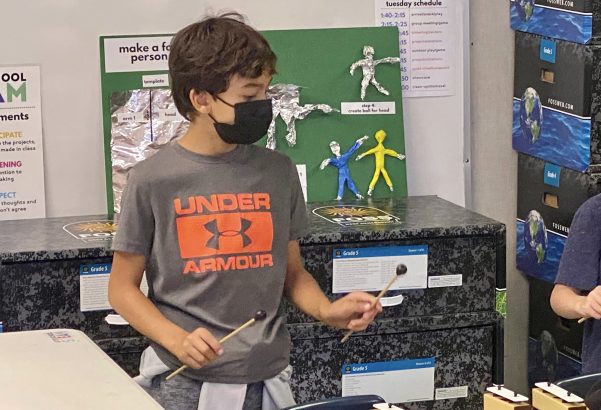
In Aaron’s case, his parents were able to choose whether their son repeated last year. That’s the way DellaVecchia, at the University of Michigan, thinks it should be — and not just because of the pandemic. He’s writing a book about third grade retention laws, including the one in Michigan, where even if a family doesn’t want their child retained, superintendents have the final word.
“I don’t like the fact that it’s the government that tells [parents], ‘We’re going to retain your kid,’” he said.
He’s among those who argue the pandemic didn’t put a pause on students’ progress.
“This idea that you can’t learn later or get caught up is false,” he said. “The kids did learn something. They weren’t vegetables.”
Lead Image: Getty Images
Get stories like these delivered straight to your inbox. Sign up for The 74 Newsletter

